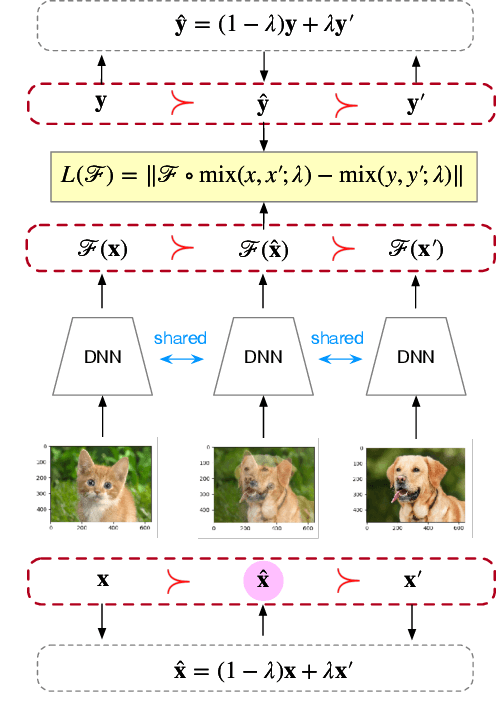Mixup Augmentation with Multiple Interpolations
Paper and Code
Jun 03, 2024



Mixup and its variants form a popular class of data augmentation techniques.Using a random sample pair, it generates a new sample by linear interpolation of the inputs and labels. However, generating only one single interpolation may limit its augmentation ability. In this paper, we propose a simple yet effective extension called multi-mix, which generates multiple interpolations from a sample pair. With an ordered sequence of generated samples, multi-mix can better guide the training process than standard mixup. Moreover, theoretically, this can also reduce the stochastic gradient variance. Extensive experiments on a number of synthetic and large-scale data sets demonstrate that multi-mix outperforms various mixup variants and non-mixup-based baselines in terms of generalization, robustness, and calibration.
 Add to Chrome
Add to Chrome Add to Firefox
Add to Firefox Add to Edge
Add to Edge